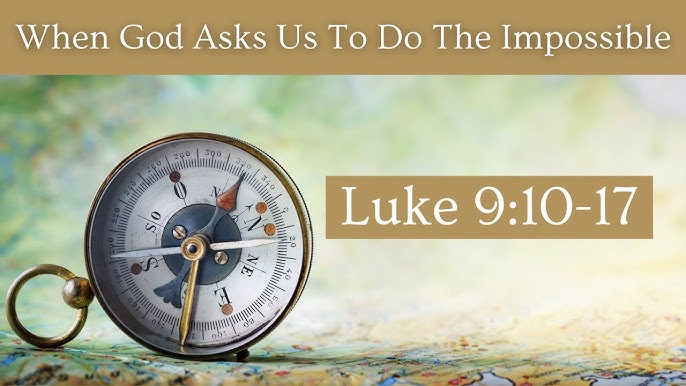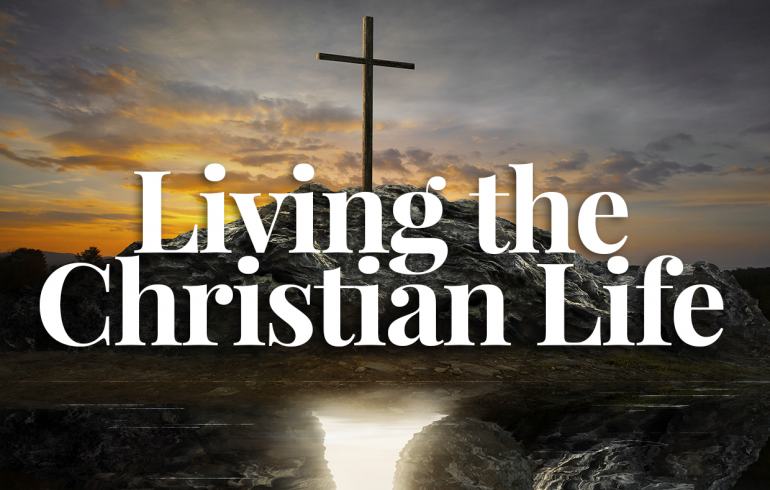-
 play_arrow
play_arrow
Praise 24/7 NO Today's Best Gospel
Devout Christians: When God Asks the Impossible – Lessons from Peter, Jonah, and Moses.

(ThyBlackMan.com) Whatever you may think of God, and many of us have notions of God that are quite bizarre, we are apt to think, at times, that God has gone too far, he is asking too much, he wants the impossible. Tell me to love my difficult, bad-tempered, sin-loving wife and okay, I can do that; tell me to love my quarrelsome, thiefing, wife-beating neighbour and alright, I will try, I can do that; but asking me to love my enemy that is trying to snuff out my life, and the life of my family is, I submit dear Lord, asking too much.

Is it really?
There never was a time when God has stopped asking believers to do the impossible, for to do so would be imposing artificial limits on God-given, yet to be developed aspirations and potential. Every believer has to be faced with the impossible, perhaps many times, perhaps just the once, to exit the safety of self-assuredness and step out upon the unknown based on nothing but trust.
Follow me carefully.
If God can’t get you to do something when you have every reason not to, then God is not as strong an influence on your life as you think.
God wanted Peter, as leader of the church, to reach out to non-Jews and evangelise them into the church. So what did God do?
God gave Peter a vision, and in it a sheet was let down from heaven with all manner of animals and birds, and God said to Peter, “Arise, kill and eat” (Acts 11:7)
Peter had his “impossible” moment and, like every believer, he dealt with it just as we all deal with ours; with righteous indignation.
Peter’s response was immediate and forthright, “Not so, Lord: for nothing common or unclean hath at ay time entered into my mouth.” (Acts 11:8)
Peter was incensed that God would ask him to do the impossible. Permit me to paraphrase what Peter was saying:
“Lord, do you know who I am? I am Peter, a devout Jew, I am dedicated to The Laws of God as given to Moses. Moses told us very clearly in Leviticus, what foods are clean to eat, and what foods are dirty. And here you are, presenting me with a whole lot of dirty animals, and filthy birds, and telling me to feast on them. No, Lord, No. I am sorry. Can’t do that. You are asking me to do the impossible. God, are you kidding me?”
Follow me closely and carefully and I will show you Peter’s real problem. And ours. You must understand that there is a real chasm between easily expressed theory and the thorny, more risky thing called practice.
Putting into practice what we know to be right and excellent in theory sometimes make us very uncomfortable. We are uncomfortable not because we are evil, but because we are conditioned by our cultural norms to do and see things in a certain way, and those cultural norms conflict, at times, with our spiritual enlightenment.
The reason you are a believer is because God, through Jesus Christ, has called you out from where you were and made you to sit in a heavenly place with Christ. You are changed, you are transformed and your eyes are opened to new visions and a new reality.
But as a human being you still like, and avoid, being uncomfortable.
I put it to you that the avoidance of being uncomfortable, a sense of discomfort, is the cause of much reluctance to doing God’s will.
Take the case of Jonah, a prophet whom God wanted to send to Nineveh, to preach to them and give them a chance of redemption. Jonah ran away as far as he could from Ninevah, even to Joppa, and taking a ship bound for a far away place called Tarshish. Jonah was uncomfortable helping people to get saved, people who he regarded as enemies, and for whom he had deep resentment. Jonah was in fact saying to God, ” No, that is impossible, I can’t do that.”
The person, however, who put up the strongest resistance to doing what God requested was perhaps the greatest leader of Israel; none other than Moses.
In truth, Moses loved being a shepherd, looking after sheep roaming all over the plains, loved sheltering under the trees, and relaxing by the waters of the silent brooks and meandering streams. Life was idyllic for Moses, trouble free, sedentary, almost therapeutic and beguiling in its flora and fauna, life was good.
And then God called him to go and do a demanding job, a job that might even be dangerous.
And how did Moses react to the call? He reacted in the same way that people who are comfortable with their life react, don’t want to trouble themselves with the concerns of others, can’t be bothered to reach out, or assist, or give a helping hand, or bridge the gap or do anything out there. Moses was saying to God, “Lord, this is impossible, I can’t do it.”
Notice how clever Moses was. He was not saying “I won’t do it” meaning I know I am able to do it but I don’t want to. Moses was saying “I can’t do it” meaning I do not have the ability to do what you are asking.”
Moses spelled it out five times why the task was impossible:
I can’t do it Lord, because of who I am. (Exodus 3:11)
I can’t do it Lord; because I don’t know what to say. (Exodus 3:13)
I can’t do it Lord, because they will not believe me. (Exodus 4:1)
I can’t do it Lord; because I am not eloquent. (Exodus 4:10)
I can’t do it Lord, because I’m not the right person; so please send somebody else. (Exodus 4:13)
Finish story here; Devout Christians: When God Asks the Impossible – Lessons from Peter, Jonah, and Moses.
Written by: Black Gospel Radio
Similar posts
-

D.K. Smith
For every Show page the timetable is auomatically generated from the schedule, and you can set automatic carousels of Podcasts, Articles and Charts by simply choosing a category. Curabitur id lacus felis. Sed justo mauris, auctor eget tellus nec, pellentesque varius mauris. Sed eu congue nulla, et tincidunt justo. Aliquam semper faucibus odio id varius. Suspendisse varius laoreet sodales.
close Top popular

The Science of Happiness – Exploring Factors for Well-Being

Balancing Act: Prioritizing Your Well-Being in a Busy World

Overcoming Procrastination – Strategies for Productivity and Success

Unlocking Hidden Potential – A Guide to Personal Growth

Mindful Living – Cultivating Presence in the Modern Era

CONTACT US
- info@praise247no.com
FOLLOW US
- Praise247NO
- Praise247NO
- Praise247NO
Copyright 2024 Praise247no.com - All Rights Reserved.




Post comments (0)